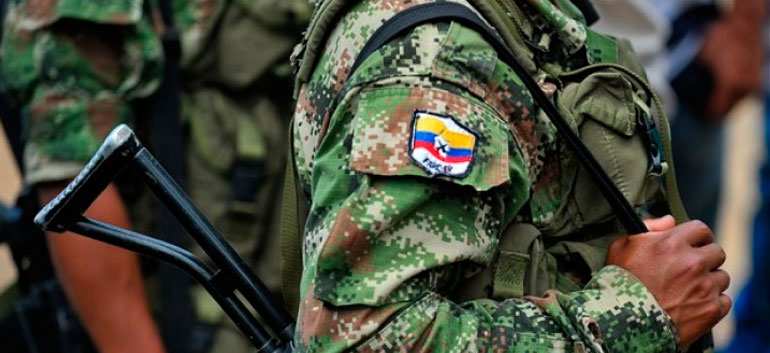A wave of outrage swept across the Cauca state in southwestern Colombia after the murder of two members of the indigenous guard allegedly committed by a group of FARC fighters.
The double homicide reportedly took place on Tuesday, around 11.30 AM, on the road to El Tablazo township, when two indigenous guards got into discussion with a group of guerrilla fighters over propaganda posters commemorating the death of Alfonso Cano, one of FARC’s late leaders.
The mayor of the town, Ezequel Vitonas, explained that “the initial information suggests that the guerrilla members were installing propaganda banners and the indigenous guard decided to remove them. This led to the scuffle and, in consequence, murder.”
The official identified the victims as Manuel Antonio Tumiña and Daniel Coicue. “One of them was taken to the municipal hospital, but passed on the way. The second victim stayed at the other side of the river which runs nearby” said Vitonas.
Community tried catching killers
The government secretary and the ombudsman of the municipality have come to the area, as have indigenous authorities. “People wanted to search and capture the perpetrators, which caused concern over potential new clashes with the guerrilla” continued Vitonas.
In fact, soon after the murder, members of the indigenous council detained three suspects in the center of the town. According to the Regional Indigenous Council of Cauca (CRIC) the apprehended criminals will be put on trial and sentenced under the indigenous laws.
Additionally, the local leaders announced that a group of around 350 individuals is being organized to capture the remaining guerrilla fighters involved in crime.
Voices of condemnation
In an official statement, the CRIC condemned the murder, explained the reasons for the Indigenous Guard to remove the propaganda posters and referred to the ongoing peace talks between the Colombian government and FARC.
“Propaganda posters have been installed in different places across Cauca, with messages related to FARC displayed in community sites and schools. The signal from traditional authorities was to remove similar banners.” reads the statement.
“The indigenous guard is a manifestation of peace from the whole indigenous movement. In that sense, it is completely contradictory and reproachable that in the middle of peace talks in Cuba, armed actors continue indiscriminate killings of our community members. While president Santos tours Europe in search of resources for post-conflict, on our territories the acts of war never stop.” concluded the message from the CRIC.
The indigenous authorities will meet on Thursday to discuss further actions with reference to the murder. Leaders insist on the proposal of demilitarization of the territories.
Colombia’s Ombudsman office revealed that the crime was likely committed by the insurgents from the 6th FARC front, which operates in the region. The same front is believed to have installed explosive materials near a health post in the village of San Andres de Pisimbala, in the Inza municipality.
Ombudsman Jorge Armando Otalora, publicly asked the peace negotiators on both sides in Cuba to “demand respect for the International Humanitarian Law, as negotiating in the middle of the conflict can’t have negative impact on civilians.”
Interior Minister Juan Fernando Cristo, was another voice to condemn the crime. “It is a shameful and deplorable attack against the indigenous population. The Government strongly disapproves of this act which defies description and doesn’t help the peace process.”
The indigenous peoples of Cauca are protected by an interim measure issued in 2009 by the Inter-American Commission on Human Rights and are included in the National Victims Registry as subjects to collective redress.
The killings come only days after the FARC claimed to not have been guilty of war crimes against civilians in the 50 years the rebel group has been fighting the Colombian state.
MORE: FARC Denies Having Committed War Crimes Against Civilians


